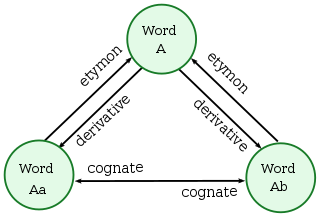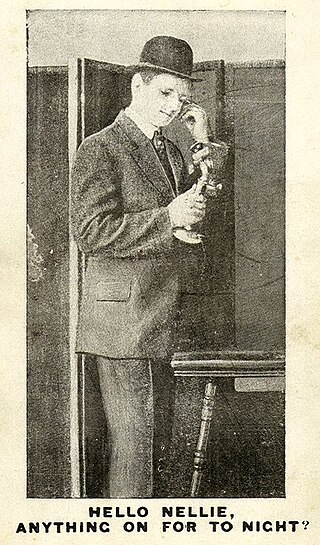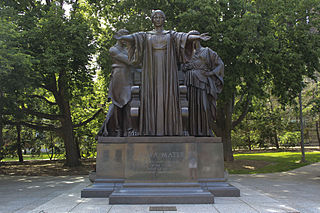Related Research Articles

In historical linguistics, cognates or lexical cognates are sets of words that have been inherited in direct descent from an etymological ancestor in a common parent language.

A cabal is a group of people who are united in some close design, usually to promote their private views or interests in an ideology, a state, or another community, often by intrigue and usually without the knowledge of those who are outside their group. The use of this term usually carries negative connotations of political purpose, conspiracy and secrecy. It can also refer to a secret plot or a clique, or it may be used as a verb.
Gibberish, also known as jibber-jabber or gobbledygook, is speech that is nonsense: ranging across speech sounds that are not actual words, pseudowords, language games and specialized jargon that seems nonsensical to outsiders.

An eponym is a person, a place, or a thing after whom or for which someone or something is, or is believed to be, named. Adjectives derived from the word eponym include eponymous and eponymic.

The boondocks is an American expression from the Tagalog (Filipino) word bundók ("mountain"). It originally referred to a remote rural area, but now, is often applied to an out-of-the-way area considered backward and unsophisticated by city-folk. It can also occasionally refer to a mountain in both Filipino and American context.

A couch, also known as a sofa, settee, chesterfield, or davenport, is a cushioned item of furniture that can seat multiple people. It is commonly found in the form of a bench with upholstered armrests and is often fitted with springs and tailored cushion and pillows. Although a couch is used primarily for seating, it may be used for sleeping. In homes, couches are normally put in the family room, living room, den, or lounge. They are sometimes also found in non-residential settings such as hotels, lobbies of commercial offices, waiting rooms, and bars. Couches can also vary in size, color, and design.

A shiv, also chiv, schiv, shivvie, or shank, is a handcrafted bladed-weapon resembling a knife that is commonly associated with prison inmates.
Folk etymology – also known as (generative) popular etymology, analogical reformation, (morphological)reanalysis and etymological reinterpretation – is a change in a word or phrase resulting from the replacement of an unfamiliar form by a more familiar one through popular usage. The form or the meaning of an archaic, foreign, or otherwise unfamiliar word is reinterpreted as resembling more familiar words or morphemes.
Spic is an ethnic slur used in the United States to describe Hispanic and Latino Americans or Spanish-speaking people from Latin America.

A humbug is a person or object that behaves in a deceptive or dishonest way, often as a hoax or in jest. The term was first described in 1751 as student slang, and recorded in 1840 as a "nautical phrase". It is now also often used as an exclamation to describe something as hypocritical nonsense or gibberish.
Burgess was a British title used in the medieval and early modern period to designate someone of the burgher class. It originally meant a freeman of a borough or burgh but later came to mean an official of a municipality or a representative in the House of Commons.

The English word god comes from the Old English god, which itself is derived from the Proto-Germanic *gudą. Its cognates in other Germanic languages include guþ, gudis, guð, god, and got.
The term man and words derived from it can designate any or even all of the human race regardless of their sex or age. In traditional usage, man itself refers to the species or to humanity (mankind) as a whole.

Hello is a salutation or greeting in the English language. It is first attested in writing from 1826.

Cracker, sometimes cracka or white cracker, is a racial epithet directed towards white people, used especially with regard to poor rural whites in the Southern United States. Although commonly a pejorative, it is also used in a neutral context, particularly in reference to a native of Florida or Georgia.

Alumni are former students or graduates of a school, college, or university. The feminine plural alumnae is sometimes used for groups of women, and alums or alumns as gender-neutral alternatives. The word comes from Latin, meaning nurslings, pupils or foster children, derived from alere "to nourish".
References
- 1 2 Chisholm, Hugh, ed. (1911). . Encyclopædia Britannica (11th ed.). Cambridge University Press.
- ↑ "Caption". The American Heritage Dictionary of the English Language (5th ed.). HarperCollins.